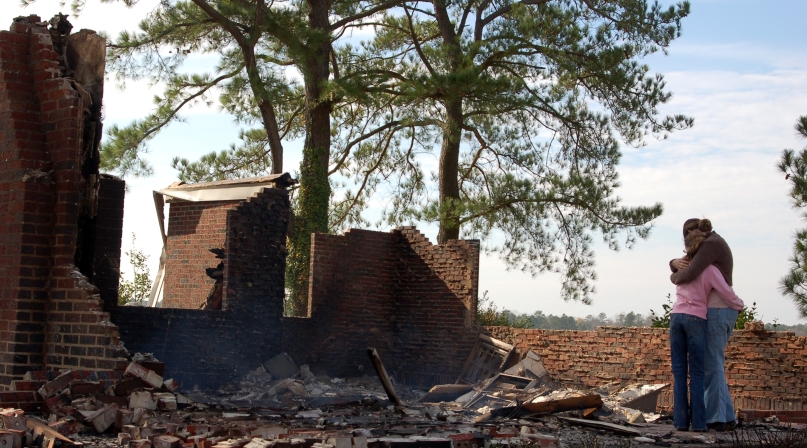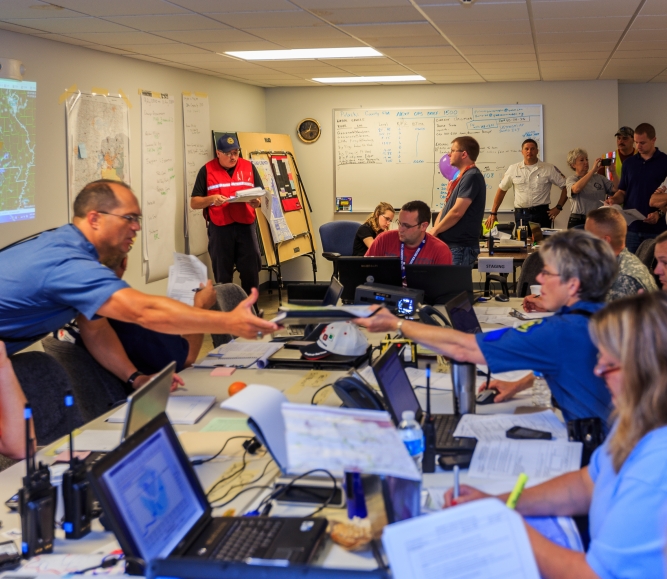Senate Committee advances Disaster Survivors Fairness Act
Author

Brett Mattson

Naomi Freel
Upcoming Events
Related News

Key Takeaways
On Wednesday, September 25, the U.S. Senate Committee on Homeland Security and Governmental Affairs held a markup to consider 16 bills. Among them was the Disaster Survivors Fairness Act (S. 5067), legislation designed to reform federal disaster assistance programs to better support survivors, which passed out of committee with strong bipartisan backing.
S. 5067, the Disaster Survivors Fairness Act
The Disaster Survivors Fairness Act provides the Federal Emergency Management Agency (FEMA) with expanded authorities to better support individuals and communities recovering from disasters. Key provisions of the bill include:
- Enhancing FEMA’s ability to fund disaster mitigation projects and expanding support to homeowners.
- Allowing FEMA to reimburse states that implement innovative post-disaster housing solutions.
- Bolstering the development of post-disaster solutions for renters.
- Requiring FEMA and the Government Accountability Office (GAO) to conduct studies and reports to identify challenges and improve the administration of post-disaster assistance, increasing transparency in the process.
On March 23, 2023, NACo submitted a letter to Congress expressing strong support for the Disaster Survivors Fairness Act, highlighting the need for a universal disaster application that simplifies the application process for survivors. The letter emphasized how the current process can be complex and confusing during critical recovery times, and advocated for direct assistance for home repairs and the establishment of a monitoring dashboard to track individual progress in receiving aid.
Impact on Counties
The advancement of the Disaster Survivors Fairness Act represents a significant victory for counties, which are on the front lines of disaster recovery efforts. By enhancing FEMA’s authorities and increasing support for housing solutions, this legislation would allow counties to better address the diverse needs of residents in the aftermath of disasters. Additionally, the requirement for FEMA and GAO to conduct reports on post-disaster assistance will help identify ongoing challenges, providing counties with the information necessary to advocate for further improvements. NACo’s role in supporting the Disaster Survivors Fairness Act ensures that counties' needs are central to future disaster recovery efforts.
Resource
Intergovernmental Roles and Responsibilities in Disaster Resilience

Related News

Information-sharing bill could protect court workers
The Countering Threats and Attacks on Our Judges Act could provide more than 30,000 state and local judges with access to security assessments, best practices and a database of threats made against colleagues in the justice field.

After historic winter storms, counties assess response
Counties in states that rarely receive much winter weather are assessing their responses to the January storm that left many covered in snow and ice.

California counties fight agricultural crime
Sheriffs' offices and prosecutors in California's central valley make specific efforts to prevent and prosecute crimes against the agricultural community.